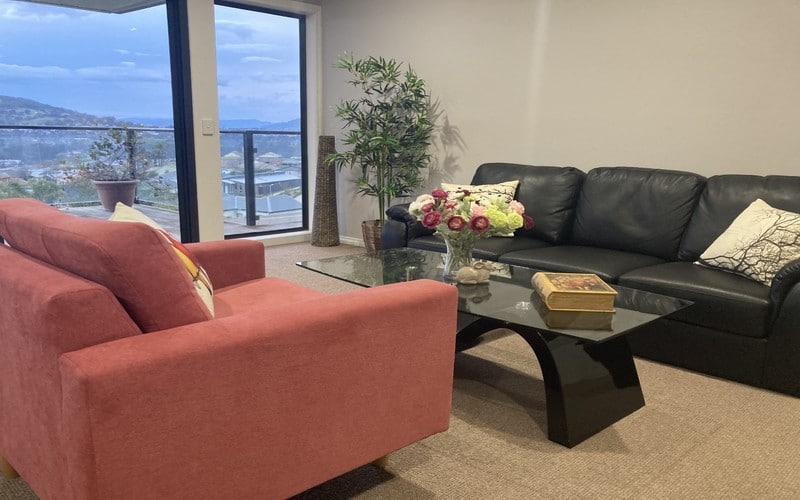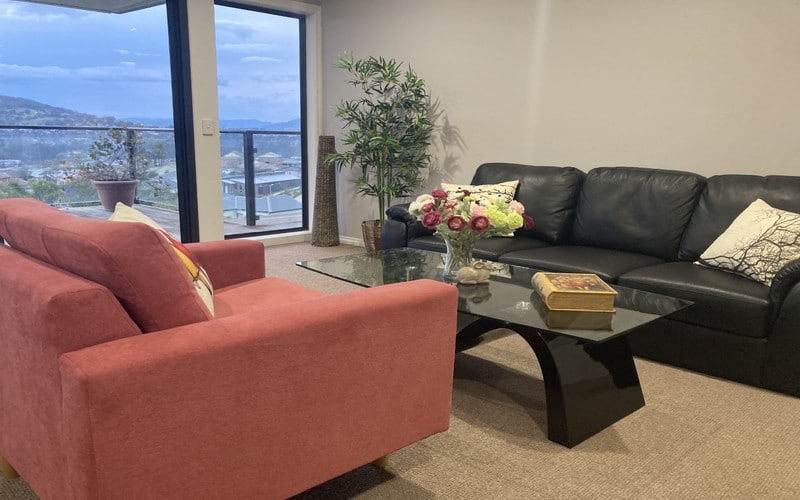
Specialities
Depression
Depression makes us feel disconnected from ourselves, the people around us and the world in general. Perhaps your life looks great from the outside. But the façade is difficult to keep up, and you know you can’t go on like this forever. It’s exhausting and you want to start enjoying your life.
You might feel tearful and sad a lot of the time, unable to explain exactly what you are sad about. On bad days, getting out of bed, taking a shower or fixing a meal feels like an uphill battle. You feel isolated and don’t really like yourself. All you feel like doing is hiding away from the world and to just be nothing.
Healing from depression starts by recognising that it is not just a nuisance to “get over”. In counselling, we will work on understanding the beliefs you have about yourself that are at the source of your emotions. Although there aren’t any overnight solutions, this doesn’t have to go on forever. A life filled with good relationships with others and yourself is possible once you remove the barriers standing in the way.
123


Anxiety
When left unaddressed, anxiety prevents you from enjoying your life. If you’ve been dealing with anxiety for a long time, you’re probably tired of feeling overwhelmed, tired and on edge all the time.
You might resort to withdrawing or avoiding certain situations in order to guard against these overwhelming feelings, but it feels like things have to change. When you are feeling this way, it is hard to create and maintain relationships with people you genuinely appreciate.
Asking for help is the first step towards experiencing relief from anxiety and starting to feel more relaxed. Counselling can help you to understand why you feel this way and the proactive steps you can take to start feeling calmer.
123
Trauma
Trauma can take many forms. Perhaps you were abused or physically attacked and you haven’t been the same since.Or perhaps you grew up in a family where you never truly felt safe, your caretakers were at the source of your fear, and you’ve always been a “worrier”.
When we experience something that threatens our sense of safety or sense of self, our mind shifts into a tense and elevated state. Our mind is constantly vigilant and we are unable to feel relaxed.This doesn’t have to be a single isolated event. Growing up in a household where you feel rebuffed, rejected or unsafe can bump you into this elevated state of vigilance.
Even if you truly desire to “switch off”, a part of you finds it almost impossible to do so. This is a natural response to experiences that are overwhelming. In counselling you can break free from these past experiences and start to feel more at ease. A safe and trusting therapeutic relationship creates the opportunity for you to let go and heal from past hurts.
123
Grief & Loss
You’ve lost someone, or a relationship, and time seems to have frozen. It’s hard to believe that the world goes on without them.
Grief might come in waves. You start to feel okay, but then it takes over all of a sudden. This is a normal part of grieving. You might feel like you “should” be over it, and you attack yourself for not being strong enough to deal with it. Expectations from work and family loom over you, but you are not sure how to explain what you are going through..
Counselling is the space where you can talk about the meaning and impact of your loss, and find ways to approach the future. Counselling can support you to feel better, without rushing you to “get over it”. You can feel supported to grieve at your own pace, with no judgement or expectation of how you should be feeling.
123


Relationships
When your relationships are going well, they can be a source of comfort and happiness. We can often measure the quality of our life by the quality of our relationships. However, this doesn’t mean relationships are easy. There can be tension, disconnection, misunderstanding or poor communication.
You want to feel close and connected, and your partner might want the same thing, but it is not always clear how to do this. You might be struggling with questions such as – “Do we really need counselling or is this just something normal in relationships?”, “What does a good relationship look like?”, “What do I really want from this relationship?”
I work with both couples and individuals who want support and guidance in how to make their relationships feel more connected and fulfilling.
123
Anger Management
If you’re dealing with anger issues you might wonder whether the problem lies in you or whether the people around you are just too sensitive. People around you label you as a problem case but it’s difficult to know what to do about it. You’ve been told to hold it in, but this obviously doesn’t work.
Anger management involves understanding the source of your anger and how you can address the underlying issues that are causing it. You will come to understand the nuts-and-bolts of your anger and understand how and why it affects your life. Anger is one of the ways that you might react to challenging situations where you feel you are not being understood or taken into consideration.
In anger management, you can learn how to be respected without lashing out, . The goal is not to please those around you, but to help you enjoy your life and the relationships.

Depression
Depression makes us feel disconnected from ourselves, the people around us and the world in general. Perhaps your life looks great form the outside. But the façade is difficult to keep up, and you know you can’t go on like this forever. It’s exhausting and you want to start enjoying your life.
You might feel tearful and sad a lot of the time, unable to explain exactly what you are sad about. On bad days, getting out of bed, taking a shower or fixing a meal feels like an uphill battle. You feel isolated and don’t really like yourself. All you feel like doing is hiding away from the world and to just be nothing.
Healing from depression starts by recognising that it is not just a nuisance to “get over”. In counselling, we will work on understanding the beliefs you have about yourself that are at the source of your emotions. Although there aren’t any overnight solutions, this doesn’t have to go on forever. A life filled with good relationships with others and yourself is possible once you remove the barriers standing in the way.

123
Anxiety
When left unaddressed, anxiety prevents you from enjoying your life. If you’ve been dealing with anxiety for a long time, you’re probably tired of feeling overwhelmed, tired and on edge all the time.
You might resort to withdrawing or avoiding certain situations in order to guard against these overwhelming feelings, but it feels like things have to change. When you are feeling this way, it is hard to create and maintain relationships with people you genuinely appreciate.
Asking for help is the first step towards experiencing relief from anxiety and starting to feel more relaxed. Counselling can help you to understand why you feel this way and the proactive steps you can take to start feeling calmer.

123
Trauma
Trauma can take many forms. Perhaps you were abused or physically attacked and you haven’t been the same since.Or perhaps you grew up in a family where you never truly felt safe, your caretakers were at the source of your fear, and you’ve always been a “worrier”.
When we experience something that threatens our sense of safety or sense of self, our mind shifts into a tense and elevated state. Our mind is constantly vigilant and we are unable to feel relaxed.This doesn’t have to be a single isolated event. Growing up in a household where you feel rebuffed, rejected or unsafe can bump you into this elevated state of vigilance.
Even if you truly desire to “switch off”, a part of you finds it almost impossible to do so. This is a natural response to experiences that are overwhelming. In counselling you can break free from these past experiences and start to feel more at ease. A safe and trusting therapeutic relationship creates the opportunity for you to let go and heal from past hurts.
123
Grief & Loss
You’ve lost someone, or a relationship, and time seems to have frozen. It’s hard to believe that the world goes on without them.
Grief might come in waves. You start to feel okay, but then it takes over all of a sudden. This is a normal part of grieving. You might feel like you “should” be over it, and you attack yourself for not being strong enough to deal with it. Expectations from work and family loom over you, but you are not sure how to explain what you are going through..
Counselling is the space where you can talk about the meaning and impact of your loss, and find ways to approach the future. Counselling can support you to feel better, without rushing you to “get over it”. You can feel supported to grieve at your own pace, with no judgement or expectation of how you should be feeling.

123
Relationships
When your relationships are going well, they can be a source of comfort and happiness. We can often measure the quality of our life by the quality of our relationships. However, this doesn’t mean relationships are easy. There can be tension, disconnection, misunderstanding or poor communication.
You want to feel close and connected, and your partner might want the same thing, but it is not always clear how to do this. You might be struggling with questions such as – “Do we really need counselling or is this just something normal in relationships?”, “What does a good relationship look like?”, “What do I really want from this relationship?”
I work with both couples and individuals who want support and guidance in how to make their relationships feel more connected and fulfilling.

123
Post-Separation Parenting
Even at the best of times, parenting is not easy work. You must fulfil the role of an authority, supporter, mentor, friend… Parenting from two separate households adds an additional layer of difficulty. The resentment, anger and hurt feelings that brought about the divorce can turn childcare discussions into win/lose arguments. It is harder to communicate and to ensure that your child receives everything they need to grow up to be happy, healthy and confident.
Although difficult and potentially confusing, raising children from separate households doesn’t mean that they can’t enjoy a happy childhood that will set them up to be happy independent adults. With the right support, you can find the balance between focusing on your child’s best interests and looking after your own needs and feelings. Counselling for post-separation parenting involves helping you find strategies to communicate and to manage the emotions associated with this challenge. Helping you cope helps you children as it allows you to be a more effective parent. You reduce the confrontation, tension and frustration that co-parenting can involve.
123
Anger Management
If you’re dealing with anger issues you might wonder whether the problem lies in you or whether the people around you are just too sensitive. People around you label you as a problem case but it’s difficult to know what to do about it. You’ve been told to hold it in, but this obviously doesn’t work.
Anger management involves understanding the source of your anger and how you can address the underlying issues that are causing it. You will come to understand the nuts-and-bolts of your anger and understand how and why it affects your life. Anger is one of the ways that you might react to challenging situations where you feel you are not being understood or taken into consideration.
In anger management, you can learn how to be respected without lashing out, . The goal is not to please those around you, but to help you enjoy your life and the relationships.


Are You Ready To Start Feeling Better?
0438 470669
njacksoncounselling@gmail.com
Ballara Drive, West Wodonga - 3690
I provide online as well as face-to-face sessions

